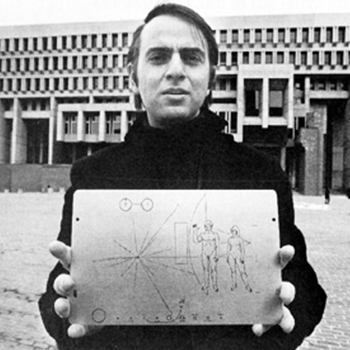We read about them in our textbooks. They’re the giants with discoveries that make our understandings of moon phases and seasonal changes seem minuscule and insignificant. We stand on their shoulders when we learn about atmospheric conditions on different planets. We hold their hands while launching expensive equipment into the hardly-known (space). We sometimes name this equipment after them.
Galileo. Copernicus. Hubble. James Webb.
Carl Sagan.
The former names have been turned into enterprises, garnering funds for missions unlike past endeavors into space – names often including a lot of propaganda. While of great importance (and enough to geek any somewhat educated person out), the latter, Carl Sagan, has remained a humble reminder of the passion that is astronomy.
Sagan pushed the limits of astronomical discoveries, disregarding the status quo when it came to studying space. He’s been an advisor to NASA since the birth of its missions around 1950. For example, he advised the Apollo mission and its astronauts, and he has been a part of the Mariner, Viking, Voyager, and Galileo missions. His work has even extended into more recent endeavors, like the pursuit of understanding why Venus’s conditions are so hot.

This American astronomer put much of his focus on the communication of science. He published several works, was decorated with several awards (i.e. NASA’s “Apollo Achievement Award” and the John F. Kennedy Astronautics Award of the American Astronautical Society), and was even a Pulitzer Prize winner. Sagan didn’t have reservations about his musings about life on other planets, somewhere out there in the vastness of space. Aside from his publication about the progression of human intelligence, “The Dragons of Eden,” he even went so far as to send the song “Dark Was The Night” by Blind Willie Johnson into the great unknown, hoping for some kind of communication between life forms (if another were out there).
His ambition and paramount success, though it seems impossible, are surpassed – surpassed by his deep love for astronomy and the possibilities of information we can’t yet understand. He was a pioneer in developing and communicating spatial discoveries, as well as sparking curiosity among scientists and civilians alike.
